Richard Jones’s new production of Don Giovanni at ENO bears some passing resemblances to the opera as envisaged by its librettist and composer. Mainly, however, it goes its own way, refusing most of the time, especially at key moments, to listen to the music Mozart wrote, with consequences that Jones no doubt regards as ‘creative infidelity’. When we enter the auditorium we see a contemporary streetlight and a phone booth, straight out of Jones’s production of Siegfried at the Royal Opera 20 years ago. The curtain rises on a huge ‘Wanted’ poster of Christopher Purves, followed by a depressing series of bleak rooms, in one of which the Commendatore is bedding a prostitute and wearing white boxers, signifiers of nudity at ENO. Two rooms away, Donna Anna is beseeching Giovanni to humiliate her, establishing that in this version there is no question of unkinky lust, let alone love, except for the fairly innocent pair Masetto and Zerlina — everyone wears black apart from Zerlina in bridal white and her lover in his shirtsleeves. Giovanni dispatches the Commendatore with a stab in the groin. A succession of horny women cross the stage, Leporello opens a door for them, Giovanni follows them in and emerges five seconds later. He is trendily bi-curious, too, since he has a Leporello lookalike as one of his clients/tricks.
Christopher Purves and Clive Bayley, both wonderful artists, have a good double act going, and when the bald Giovanni dons his servant’s ginger wig and glasses, the disguise is convincing. Bayley also sings extremely well, producing a catalogue aria — from a phone book — of cold lechery. Purves, who has shown in other works that he can be powerfully sexy, seems unhappy in this production, both vocally and in terms of acting. He drains his voice of any lovely sounds, even when seducing Zerlina, and seems interested only in sadistic conquest. So the central character of the opera is not only heartless but also lacks any kind of fascination, leaving the work with a hole at its centre.
That gives Jones a chance to mess around with Giovanni’s victims, too, most notably with Elvira, for whom Mozart reserved his gentlest, most compassionate music. Christine Rice acts and sings the role gloriously, but is directed to be insane from her first entry, and by Act Two she is merely raving. For the accompanied recitative to her Act Two aria, with its aching strings, revealing Elvira’s torments of indecision, the conductor Mark Wigglesworth seems finally to rebel against the staging, and prolongs the pauses so immensely as to belong to a wholly different period and style of conducting.
There is a DVD of a performance from Opera Australia in 2011, also with Wigglesworth conducting, which is superior in virtually every respect, and there Wigglesworth shows what a fine Romantic conductor he is. At ENO he seemed uncertain as to how to cope with Jones’s new work: the Overture was as flaccid as I have heard, the orchestral playing in Act One was fast and almost eerily quiet, at least from Row G of the stalls, and it seemed as if Wigglesworth was trying not to make too much of a contrast between what we saw and what we heard. In Act Two he was more his own man (to judge from the Australian performance) with bemusing results.
Even there, though, he has been finer: the Sextet, surely the score’s most miraculous passage, the moment when Anna and Ottavio enter, to the accompaniment of quiet trumpets and drums, is in the fullest sense sacred. But there is no room for that in Jones’s cramped ontology, so Wigglesworth obediently underplayed it. Jones’s most creative-destructive moment is the dénouement of the action, which has to be seen to be believed or disbelieved. Go and add this new piece to your repertoire of operas. The singing is of a high standard overall, the action is never dull, and maybe the musical unevennesses will be ironed out.
Opera North had a new production of Gianni Schicchi last season, so its latest new show is the other two items in Il trittico. I find Il tabarro a merely depressing work, Puccini conscientiously avoiding the kind of lyricism of which he was supreme master, producing instead a foretaste of Italian neorealist cinema at its grimmest. Lots of scene-setting, thwarted loves and lives, drab settings, an all-too-brief declaration of passion, murder. Opera North’s production is faithful, worthy, and has a sexy tenor in David Butt Philip. Giselle Allen is the frustrated Giorgetta, Ivan Inverardi her uncomprehending, pitiable husband. Perhaps this is the most honest of verismo operas, but it pays the price in lowering the spirits without producing any insights.
Suor Angelica is Puccini seeing how long he can go on being almost saccharine without actually collapsing into self-parody, though it is vertiginous — and the Royal Opera’s production, one of Richard Jones’s most egregious successes, refuses to be erased from the memory. Opera North’s account, directed by David Pountney and conducted by Jac van Steen, is more straightforward, and gets what I imagine to be the pious-cum-bitchy atmosphere of a nunnery very well. Anne Sophie Duprels is as compelling as she is in everything I have seen, and the only miscalculation seemed to be the Princess of Patricia Bardon, a power-dressed iceberg, vile to the point of absurdity. The closing vision of a transfigured baby’s face is well managed, touching if not moving. At least someone ends up happy at the end of a bleak evening, even if they are in a state of delusion.
Got something to add? Join the discussion and comment below.
Get 10 issues for just $10
Subscribe to The Spectator Australia today for the next 10 magazine issues, plus full online access, for just $10.

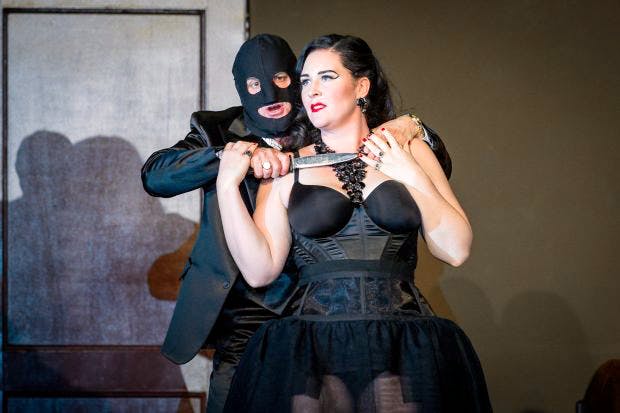
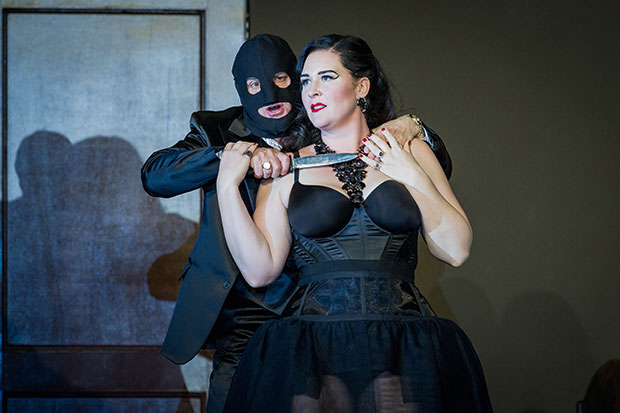
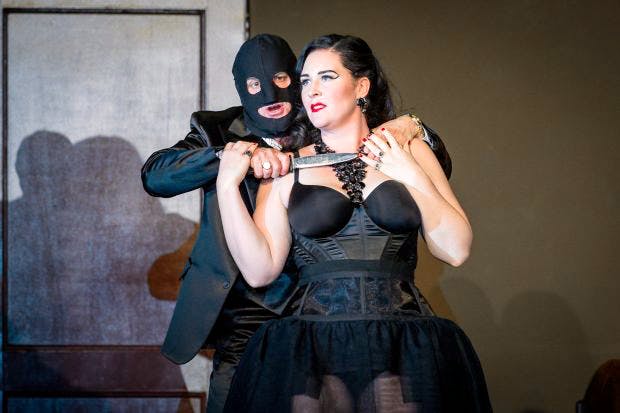

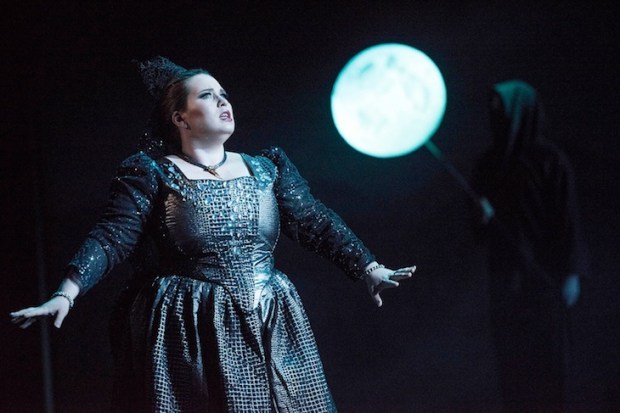
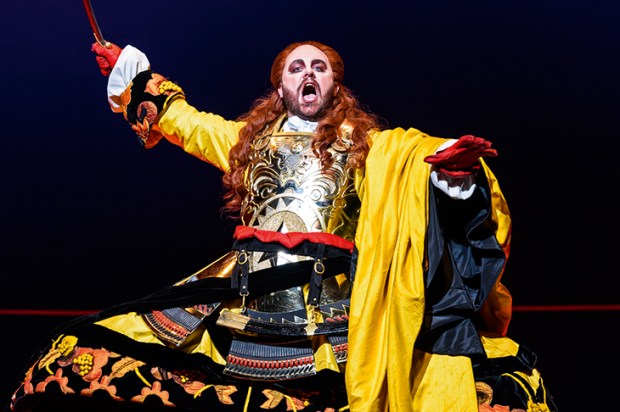
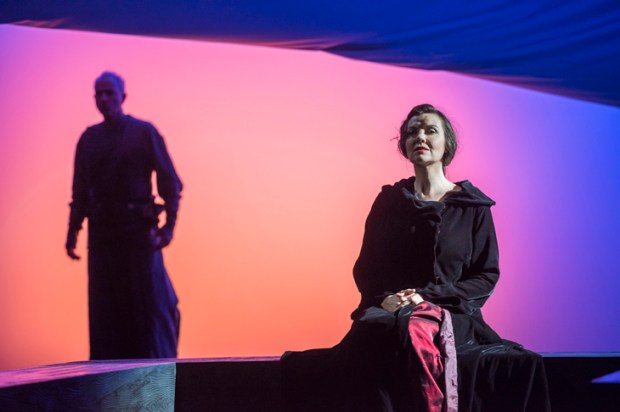






Comments
Don't miss out
Join the conversation with other Spectator Australia readers. Subscribe to leave a comment.
SUBSCRIBEAlready a subscriber? Log in